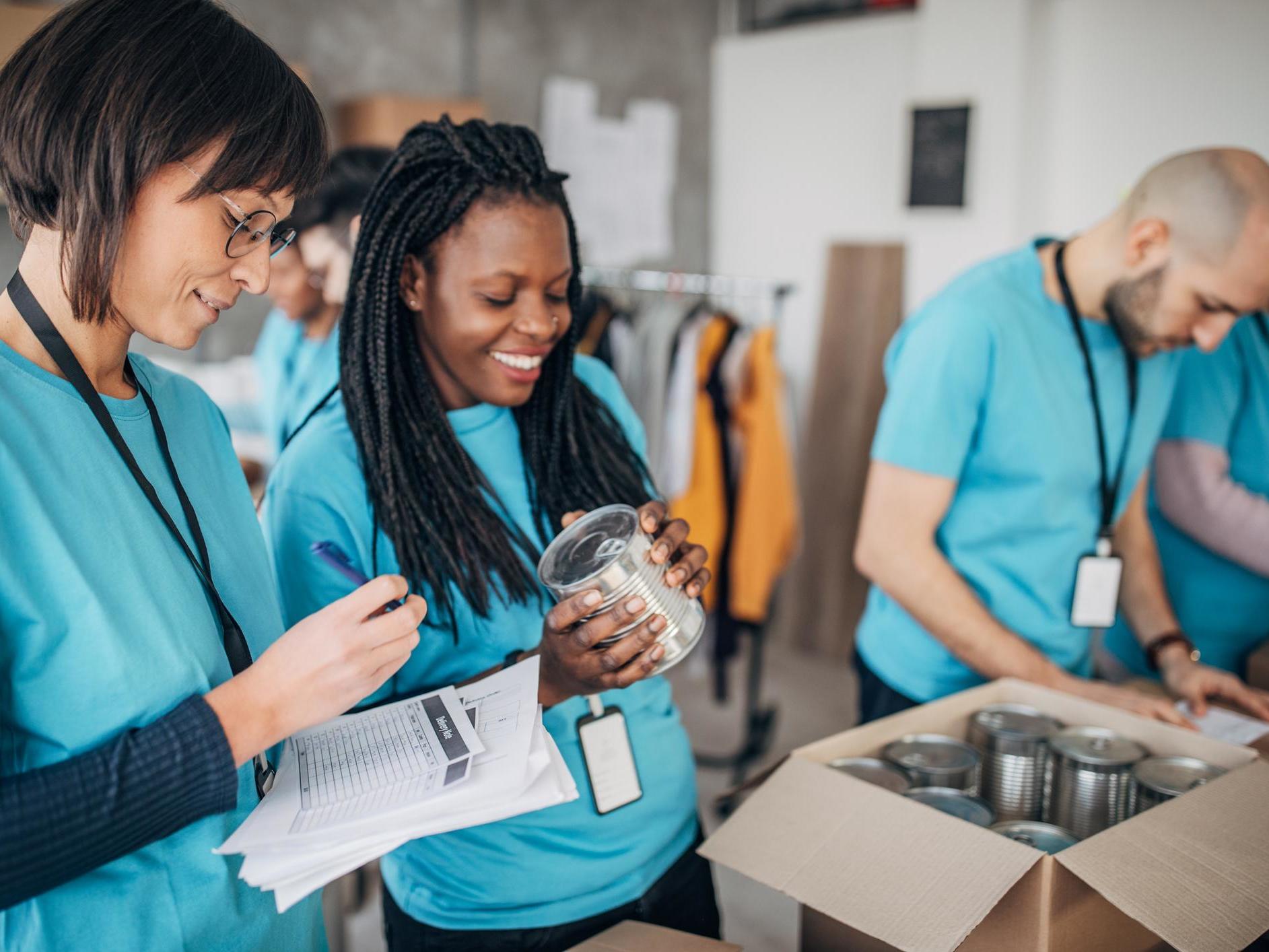If lockdown continues, nine out of 10 BAME voluntary organisations will close. Who will support us then?
These initiatives have battled through years of underfunding and institutional racism to continue to support their communities. Now they're under more threat, the need for funding is as urgent as ever

Your support helps us to tell the story
From reproductive rights to climate change to Big Tech, The Independent is on the ground when the story is developing. Whether it's investigating the financials of Elon Musk's pro-Trump PAC or producing our latest documentary, 'The A Word', which shines a light on the American women fighting for reproductive rights, we know how important it is to parse out the facts from the messaging.
At such a critical moment in US history, we need reporters on the ground. Your donation allows us to keep sending journalists to speak to both sides of the story.
The Independent is trusted by Americans across the entire political spectrum. And unlike many other quality news outlets, we choose not to lock Americans out of our reporting and analysis with paywalls. We believe quality journalism should be available to everyone, paid for by those who can afford it.
Your support makes all the difference.As numerous reports have shown, Black and Minority Ethic (BAME) groups are disproportionately affected by the coronavirus. But further revelations about the state of affairs for BAME communities show just how stark things will become.
Last week, the Ubele Initiative revealed that nine out of 10 BAME-led voluntary and community sector organisations (VSC) are at risk of closure in the next three months. These are the very charities and grassroots groups working to support a community identified by the government and Public Health England as most “at risk” and “vulnerable” of contracting and dying from coronavirus. If we don’t immediately get funds to these organisations on the frontline, the picture looks even more harrowing for the BAME communities that they support.
Were you among the millions to donate to one of the hugely successful fundraising campaigns over the past few weeks such as the 2.6 Challenge, The Big Night In and National Emergency Trust Emergency Appeal? Have you ever considered who holds the power to decide where your money goes? Would you agree with the way that power chose to distribute your money? Government funding and public donations in the emergency response to coronavirus are funnelled through the funding sector. Their policies and practices reinforce structural racism which has led to years of neglect and a severely under-funded BAME VCS sector, impacting the groups and communities that they work with.
Many of these funding organisations hide behind good intentions and it can be easy to overlook the biases, politics and institutional racism that operates within senior leadership teams, which are 99 per cent white and unrepresentative of the communities they seek to support.
The most powerful of these funders are The National Lottery Community Fund (TNLCF) and National Emergency Trust (NET), whose history of excluding BAME-led organisations showcases why diversity at the decision-making table is so vital. For instance, of TNLCF’s largest 50 grants distributed in London in 2019, only 7.74 per cent went to BAME VCS organisations – the BAME population in London is 44 per cent. The picture is just as bleak from our analysis of NET. Their only distribution partner, UK Community Foundations (UKCF), whose Oxford Community Foundation – a city with a 22 per cent ethnic minority population – have only distributed 2.66 per cent of their funds to BAME VCS organisations so far in 2020.
It is seriously concerning that these are the infrastructures trusted with the power and decisions of which charities get to continue their coronavirus response work and which have to close their doors. Ultimately, they are deciding which communities are left without support. In a crisis where BAME groups are dying and being left destitute at a disproportionate rate, funds should be channelled through organisations that care to prioritise them.
BAME VCS groups have battled through years of underfunding to continue to support their communities. Their work is so impactful and vital because they are led by individuals who have the culturally specific knowledge, lived experience, connections and trust of the communities they work with. These are the people on the frontline leading the charity sectors response but they seriously lack the investment and support from the funding sector to do it. At Charity So White, which works to mobilise the power of people of colour in the charity sector and demand a seat at the table after years of complacency from leaders, we are gravely concerned about the impact this will have on BAME communities, as they face the disproportionate effects of coronavirus in immediate, aftermath and long-term. Without those frontline organisations, who will be there to support them?
There’s a lot of work that needs to be done in the charity and funding sector to solve these long-standing issues of structural racism. But we currently face an unprecedented crisis so must urgently act if we want to support those most disproportionately impacted. #CharitySoWhite has over 100 signatories calling for 20 per cent of funds to be equitably distributed to BAME-led organisations working with BAME communities. Until then, the best way the public can provide support is by donating directly to your local community groups and grassroot organisations. They are fighting tirelessly with limited funds to not close their doors, as they wait to hear whether funders have decided to value their work.
This piece is a combined effort by the #CharitySoWhite organising committee, a group of volunteers campaigning to root out racial injustice in the sector
Join our commenting forum
Join thought-provoking conversations, follow other Independent readers and see their replies
Comments